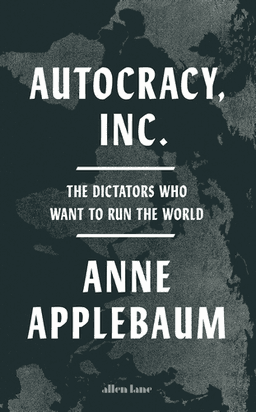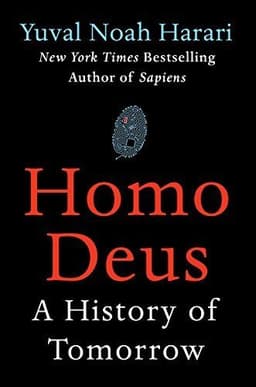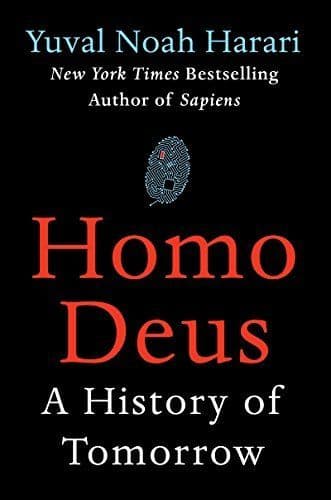
Autocracy, Inc. Book Summary
The Dictators Who Want To Run The World
Book by Anne Applebaum
Summary
In "Autocracy, Inc.," Anne Applebaum exposes the global web of dictators and their enablers who have formed a corrupt, mutually-supporting network to undermine democracy, repress their citizens, and rewrite the rules of international politics in their favor.
Sign in to rate
Average Rating: 1
The New Face Of Autocracy In The 21st Century
Modern autocracies are no longer run by a single dictator, but by sophisticated networks relying on kleptocratic financial structures, security services, and technological experts providing surveillance, propaganda and disinformation.
These networks are connected across autocratic countries and sometimes in democracies too. Autocratic regimes share a determination to repress their citizens, push back against transparency and accountability, and undermine anyone who challenges them.
Section: 1, Chapter: 1
Autocracies Are Run by Sophisticated Networks
"Nowadays, autocracies are run not by one bad guy but by sophisticated networks relying on kleptocratic financial structures, a complex of security services---military, paramilitary, police---and technological experts who provide surveillance, propaganda, and disinformation."
Section: 1, Chapter: 1
The Origins Of East-West Economic Ties In Europe
In the late 1960s, Austrian and West German capitalists met with Soviet communists to discuss building gas pipelines from the communist East to capitalist West. West German Foreign Minister Willy Brandt believed deeper economic ties would make future military conflict unthinkable and promoted "change through rapprochement" (Wandel durch Annäherung).
Not everyone agreed. U.S. presidents Nixon, Carter and Reagan worried the pipelines would enrich the Soviets, increase European energy dependence on Moscow, and empower the regime the West was supposed to be countering. But Brandt's policy largely prevailed, morphing into "change through trade" (Wandel durch Handel) after the Cold War.
Section: 1, Chapter: 1
The Naive Western Embrace Of Russian And Chinese Market Reforms
In the 1990s, Western leaders optimistically assumed trade and globalization would inevitably spread democracy to Russia and China. They underestimated how:
- Russian "capitalism" was designed from the start to favor insiders, with no real free markets. Wealth came from connections and theft, not innovation.
- Chinese companies, even in the era of economic opening, still ultimately served the interests of the Communist Party and its hold on power.
In practice, Western trade and investment often fueled kleptocracy and dictatorship rather than reforming them. But few wanted to acknowledge the moral hazards at the time.
Section: 1, Chapter: 1
How Putin's Kleptocracy Took Shape With Help From The West
As deputy mayor of St. Petersburg in the early 1990s, Vladimir Putin oversaw schemes to steal city funds and launder money through shell companies in Europe, enabled by Western banks and lawyers. In one case, his partners registered the St. Petersburg Real Estate Holding Company in Germany, took it public, then used it to launder funds before German police finally raided it in 2003.
The political system that became Putinism emerged from the nexus of the KGB's experience with clandestine finance and the amorality of the international business community. Even as Western leaders preached "rule of law" to Russia, Western enablers helped build the opposite.
Section: 1, Chapter: 1
The Gaps Between Russia's Democratic Rhetoric And Autocratic Reality
In his first years as president, Putin paid lip service to democracy, declaring in speeches that only a democratic state could balance interests and ensure rule of law, free elections and human rights in Russia.
In practice, he constructed a Potemkin democracy designed to fool foreigners while allowing him to monopolize power. Elections featured no real competition. The market operated only within Kremlin-set limits. Putin could destroy any company that crossed him, as the expropriation of Yukos by state-owned Rosneft showed. Yet Rosneft still attracted major Western investment, showing the willful blindness of those who profited from the charade.
Section: 1, Chapter: 1
Venezuela's Slide Into Kleptocracy Under Hugo Chávez
When former coup leader Hugo Chávez was elected Venezuela's president in 1998, he vowed to replace the corrupt old elite. But when his chief of police first presented evidence of graft by Chávez allies, the president fired the whistleblower.
The incident taught officials that loyalty would be rewarded with impunity to steal. Over time, Venezuela's Bolivarian socialist system enabled massive embezzlement, siphoning billions from the state oil company PDVSA into foreign accounts. Currency manipulation spawned a "boligarchy" of regime cronies who exploited distorted exchange rates. As in Russia, corruption metastasized from an aberration into the regime's operating system.
Section: 1, Chapter: 2
The Staggering Scale Of Venezuelan Kleptocratic Extraction
The scale of graft under Chávez and successor Nicolás Maduro is astounding:
- Of $1.2 trillion in oil revenues during the Chávez era, as much as $300 billion was reportedly stolen
- Transparency International documented over 125 cases of corruption at PDVSA, with 17 exceeding $1 billion each
- Investigations from Andorra to Switzerland revealed billions in accounts linked to Venezuelan officials
- U.S. authorities charged Venezuelan elites with laundering billions through American banks and real estate
This kleptocratic extraction helped tank Venezuela's economy, sparking humanitarian catastrophe and mass exodus. But high oil prices and lingering sympathy for Chávez's socialist rhetoric abroad helped delay international reckoning.
Section: 1, Chapter: 2
How Autocratic Solidarity Shored Up The Maduro Regime
As Venezuela's crisis deepened under Maduro, the regime's salvation came from fellow autocracies:
- Russia provided bailouts, arms, and propaganda support. Rosneft took over PDVSA's defaulted assets.
- China offered billions in loans to help circumvent U.S. sanctions, in exchange for oil.
- Cuba sent security advisers to help contain unrest and track dissidents.
- Turkey facilitated illicit gold sales to generate revenue.
- Iran shipped gasoline and parts to restore Venezuela's collapsing refinery infrastructure.
This solidarity, based on shared authoritarianism rather than ideology, helped the unpopular Maduro cling to power despite Western pressure, hyperinflation, and chronic shortages.
Section: 1, Chapter: 2
How Autocratic Corruption Corrodes Democracy In "Bridging" States
Certain states play an oversized role as nodes in the infrastructure of global kleptocracy:
- "Bridging states" like the UAE or Turkey have legal systems compatible with global finance but also lax regulation that attracts illicit wealth. They help kleptocrats spend and store their gains.
- Offshore "financial secrecy" and "tax haven" jurisdictions extend into putatively well-regulated democracies like the UK and US thanks to anonymous shell companies and trusts.
- Weak-governance states on the periphery of the democratic world, like Kyrgyzstan or Serbia, serve as transshipment points for autocratic commerce, e.g. helping Russian exporters circumvent sanctions.
The influx of authoritarian capital can spark a vicious cycle, empowering local elites to erode democratic safeguards, ensnaring whole societies in cross-border corruption networks centered on major autocratic powers.
Section: 1, Chapter: 2
China's Multi-Layered System Of Internet Control
Following the 1989 Tiananmen Square massacre, the Chinese Communist Party sought to eliminate the democratic "spiritual pollution" that spurred protesters. As the internet emerged, it constructed a pervasive system of online controls far exceeding a mere "Great Firewall":
- Social media is engineered for built-in surveillance
- Vague laws criminalize posting anything "endangering national security" or "detrimental to the honor and interests of the state"
The goal is to guide mass online discussion, marginalize dissent, and squelch organizing - a model gaining traction among autocracies worldwide.
Section: 1, Chapter: 3
Xinjiang As Cutting-Edge Laboratory For Digital Authoritarianism
After ethnic unrest in 2009, the Chinese state turned its Xinjiang region into an incubator for next-generation controls to pacify restive minorities like the Uighurs:
Such "safe city" systems, hooked into China's "social credit" schemes, could allow the state to identify and preempt dissent. The playbook is already spreading to Chinese-supplied surveillance states worldwide.
Section: 1, Chapter: 3
Modern Russian Propaganda's Corrosive Impact On Public Discourse
Unlike clumsy and unconvincing Soviet propaganda, modern Russian messaging aims not to inspire but to confuse, distract, and demoralize. Common themes:
- "Whataboutism" that deflects criticism by accusing the West of hypocrisy
- Amplifying voices that smear liberal societies as decadent and failing
- Portraying Russia as the defender of "traditional values" against liberal excess
Russians are fed a diet of nationalist triumphalism while "news" from democracies fixates on dysfunction, elite corruption, culture-war controversy, or civilizational decline.
Section: 1, Chapter: 3
Modern Autocrats and Money
To stay in power, modern autocrats need to be able to take money and hide it without being bothered by political institutions that encourage transparency, accountability, or public debate. The money, in turn, helps them shore up the instruments of repression.
Section: 1, Chapter: 4
The Autocratic Assault On The Language Of Human Rights
Autocracies are systematically working to purge the world's guiding institutions of references to human rights and democracy. Their replacement vocabulary:
- "Right to development" - a metrics for well-being defined by states, not universal principles
- "Sovereignty" - code for governments' impunity within their borders
- "Win-win cooperation" - mutual agreement not to criticize each other's political systems
- "Mutual respect" - non-interference in others' "internal affairs"
Section: 1, Chapter: 4
The Insidious Spread Of "Multipolarity" And Its Discontents
Russia has made "multipolarity" its byword for a desired global order without the moral straitjacket of U.S. hegemony and liberal democratic norms, resonating with sovereignty-obsessed autocrats and post-colonial states.
In practice, Russian "multipolarity" has meant:
- Invading Ukraine and annexing territory by force
- Backing coup leaders and mercenary-linked warlords in Africa
- Courting illiberal nationalists and far-right extremists in Europe and the Americas
Its practical agenda is to free autocrats from external restraints or accountability to their citizens.
Section: 1, Chapter: 4
How "Sovereign" Impunity Breeds Brazen Transnational Repression
Autocratic regimes are increasingly reaching across borders to intimidate, abduct, or assassinate dissidents with impunity, flouting international law:
- Russia has poisoned defectors in Britain and shot exiles in Germany
- Iran has kidnapped journalists from Iraq and plotted hits on U.S. soil
- Saudi Arabia murdered Jamal Khashoggi in Turkey and abducted a prince from France
- Rwanda has strangled opponents in Belgium and shot them in South Africa
Emboldened autocrats now barely bother to hide such crimes, calculating that Western law enforcement can't or won't retaliate. Lack of accountability only encourages escalation.
Section: 1, Chapter: 4
The Globalization Of Proxy Warfare And Mercenary Entrepreneurs
The war in Syria incubated new models of deniable force projection by Russia, Iran and others, through proxies and private military companies (PMCs):
- Russia's Wagner Group, a deniable cutout for Russian military and intelligence, debuted covert combat capabilities
- Iran deployed Shiite militias like Hezbollah alongside "advisers" to augment Assad's forces
- Both exploited mercenary units' potential as business ventures, granting them access to oil and mineral rights
Proxy warfare's semi-corporate innovations make military meddling harder than ever to police.
Section: 1, Chapter: 4
The Enduring Playbook Of Democratic Change Through People Power
From Prague to Kyiv to Caracas, dissidents have systematically employed non-violent pressure to challenge autocrats' monopoly on power:
- Symbolic resistance - slogans, colors, slogans that expose as choice what was considered necessity
- Coalition-building - linking disparate social classes around shared grievances and alternate national visions
- Dispersed leadership - making movements resilient to decapitation
- Exposing regime violence - shaming authorities and shifting enforcers' loyalty
- Seizing public spaces - denying regime's ability to dominate physical and information environment
Section: 1, Chapter: 5
The Anatomy Of Modern Autocratic Smear Campaigns
Compared to 20th century total censorship and mass violence, 21st century autocrats calibrate subtler ways to tarnish and intimidate critics, combining:
- Malign prosecution and stripped credentials to legally sideline opponents
- Manufactured scandals spread online to mar reputations
- Conspiracy theories alleging hidden foreign backing to undermine legitimacy
- Troll and bot armies that drown out or distort opposition messages
- Blackmail and threats to turn even family and friends into liabilities
The public, disillusioned, is left seeing honest brokers as no better than the ruling cabal.
Section: 1, Chapter: 5
Corrupting Courts And Crippling Civil Society To Eliminate "Enemies"
Subtler than jailing opponents, modern autocrats use "rule by law" to criminalize dissent, imposing regulations to throttle critics' ability to operate legally:
- "Foreign agent" laws to stigmatize activists and NGOs as suspect outsiders
- "Extremism" and "anti-terrorism" designations to ban opposition groups
- Politicized tax, libel and "morality" police to harass newsrooms and campuses
- Restrictions on NGO funding and activity to cut off resources
- Pliable prosecutors, judges and bureaucrats to enforce double standards
- State media to trumpet supposed financial or sexual misconduct
By imposing a presumption of guilt and denying the persecuted any viable defense, such systems strangle opposition in a noose of quasi-legal restraints.
Section: 1, Chapter: 5
Autocracy, Inc.'s Joined-Up Global Assault On Democracy
Modern autocrats grasp that their survival depends on weakening democracy as an idea and political model everywhere, not just in their own realms. Toward that end:
- Russia works across military, energy, cyber and information domains to destabilize Europe and commandeer its political debate
- China locks in influence over global media narratives and industrial assets while co-opting UN leadership posts
- Regional powers like Iran and Venezuela build sanctions-busting networks of trade and technology while aiding each other's repression
Autocrats increasingly coordinate and learn from each other's tools and tactics. Any victories against pro-democracy forces reverberate to embolden the autocratic bloc as a whole.
Section: 1, Chapter: 5
Related Content


Homo Deus Book Summary
Yuval Noah Harari
Homo Deus explores the future of humanity in a world where the old challenges of famine, plague, and war have been largely conquered, and new godlike technologies of artificial intelligence and bioengineering are on the horizon, forcing us to confront fundamental questions about the nature of consciousness, free will, and what it means to be human in an age of algorithms.
Homo Deus explores the future of humanity in a world where the old challenges of famine, plague, and war have been largely conquered, and new godlike technologies of artificial intelligence and bioengineering are on the horizon, forcing us to confront fundamental questions about the nature of consciousness, free will, and what it means to be human in an age of algorithms.
Futurism
Technology
Humanity
Society

